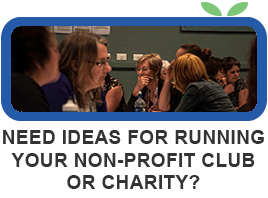Last updated August 3, 2015
Most NZ non-profits have largely accepted that Facebook has a place in their marketing and communication strategy. However, there are still some organisations that argue they have a website, and surely that’s enough? If you’re still not convinced that Facebook is a useful communication tool for your non-profit, check out these 5 good reasons to get on-board.
1. People use Facebook every day. How often do they visit your website?
No matter what you do, you will not get people checking into your website daily – there simply isn’t enough happening on your site to make it worth their while. Sure you can post website updates, but unless people know something has been posted, they simply won’t bother taking a look. On the other hand, people visit Facebook daily. You are simply feeding them information while they are there.
2. You can talk to people when they’re ready to listen.
People visit Facebook at a time and place that suits them. Unlike email or advertising, Facebook is not an interruption to their day – it is a part of their day. When they log-in, it is specifically to find out what’s going on and they’re ready to receive any information that comes their way.
3. It provides an opportunity for your whole team to connect
Clients, members, staff, board, sponsors, funders, and supporters – you are all supposed to be on the same team, but so often there is no real chance to engage. By creating a Facebook page, you are giving everyone a chance to connect and feel like a part of the bigger picture.
4. If you’re good at what you do, Facebook helps grow your reputation.
Whether you’re looking for clients, volunteers or supporters, your reputation is an absolutely vital part of a persons decision to get involved. Facebook allows people to hear what others are saying about your organisation, and that can dramatically affect your reputation – for both good and bad.
Research shows that 90% of people trust peer recommendations, where as only 14% trust traditional advertising. If your organisation is doing their job well, Facebook gives people the chance to promote that on your behalf.
5. Everyone else is doing it.
I’m a mother, so I realise that ‘everyone else is doing it’ is not normally an acceptable reason to get involved – but in this case it is. Facebook has 600 million users world-wide and just like people expect you to have a mobile phone, people expect you to be on Facebook. If your organisation isn’t there, it’s almost like you don’t exist.
Sure you can continue to communicate without Facebook, but as time goes on you will have to work harder and harder to make up for your absence online.
If you think this article would be useful for your members, you are welcome to use it on your website or in your newsletter. We just ask that you let us know where it is being used, and that you acknowledge our website at the bottom of the article. If you are using the article online, please include a link to our homepage.





We have a Facebook page that is “Closed & Confidential” to members only. We did this so that members can communicate freely between themselves without the “whole world” looking in. Is this a good idea for a Club or are we better to allow the “whole world” to view our postings?
Hi Bruce – you’re comment has only just popped up (7 months after posted) – so I am so sorry for the uber-late reply. In answer to your question – it really depends on why you’re using Facebook.
If you’re just using it as a communication tool for members, then a closed group is ideal. However, Facebook is also a great way to attract new members by sharing what’s going on in the club. Alot of organisations have both a Facebook page (to attract new members) and a Facebook group (for private communication). It’s all about what you are trying to achieve.
I hope that helps. ~ Kerri